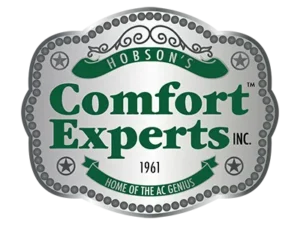Quick Takeaways
- Most air purifiers use about 10–100 watts depending on size and fan speed.
- Some calculations show monthly costs of $3–$10 depending on size and usage.
- Energy-efficient or ENERGY STAR® certified models use less power than a standard light bulb.
- Larger or older purifiers can use more electricity if not properly maintained.
- Keeping filters clean and using auto or eco modes can cut power costs significantly.
How Much Electricity Does an Air Purifier Use?
No, air purifiers don’t use a lot of electricity. Most models draw between 10 and 100 watts, which is about the same as a light bulb or ceiling fan. To put that into perspective:
- A table lamp uses around 60 watts.
- A ceiling fan runs at 75 watts.
- A window AC unit pulls anywhere from 1,000 to 3,500 watts.
That means even if you run an air purifier continuously, it barely dents your electric bill. Your air conditioner likely costs more to run in a day than a purifier does in a month. The exact energy use depends on four main factors: fan speed, filter type, run time, and room size. Let’s break down how each one affects your costs.
What Affects Air Purifier Power Consumption?
Small differences in how you run your purifier can change how much electricity it uses.
Fan Speed and Runtime
The faster the fan spins, the more energy the purifier consumes. High fan speeds clean air faster but draw more watts. Many energy-efficient air purifiers have auto or eco modes. These modes change the fan speed based on your home’s air quality, which reduce power consumption while maintaining clean air.
Filter Type and Efficiency
HEPA filters are great at trapping small particles like pollen, pet dander, and dust. However, they also create more airflow resistance. The motor compensates by working a little harder, which slightly increases electricity use. Carbon filters, used for odors and VOCs, add another layer of resistance, though the added draw is still minimal.
Room Size and Coverage Area
The larger the space, the harder your purifier has to work. Units rated for 300–500 square feet typically use 50–70 watts, while smaller desktop models might only use 10–30 watts. Choosing a purifier that matches your room size helps save energy. It also improves the clean air delivery rate (CADR).
Maintenance and Filter Condition
A clogged or dirty filter forces the fan to run longer to move air through the system. Changing filters on time and vacuuming pre-filters every month helps keep power use low. It also makes the motor last longer. A clean purifier doesn’t just clean your air—it keeps your electric bill in check.
How to Calculate Air Purifier Electricity Costs
 If you’re curious about the exact cost of running your air purifier, the math is simple.
If you’re curious about the exact cost of running your air purifier, the math is simple.
- Find your purifier’s wattage on the label or in the manual.
- Divide watts by 1,000 to get kilowatts (kW).
- Multiply by the number of hours used per day.
- Multiply that by your local electric rate.
In Fort Worth, TX, the average residential electricity rate is about $0.14 per kWh.
Example Calculation
- A 50-watt purifier runs for 24 hours.
- 50 ÷ 1,000 = 0.05 kW
- 0.05 kW × 24 hours = 1.2 kWh per day
- 1.2 kWh × $0.14 = $0.17 per day → about $5 per month
Even if you double that for a larger unit or higher fan speed, it’s still well under $10 monthly.
Energy Efficiency Tips for Air Purifiers
You can reduce electricity costs even more by running your purifier smartly.
Choose ENERGY STAR® Certified Models
ENERGY STAR-certified purifiers use up to 40% less energy than standard models. That’s because they’re tested for efficiency at different speeds and airflow levels. If you are looking for a new purifier, check its Energy Star rating. You can also ask a Comfort Experts technician for help in choosing an energy-efficient model.
Use Auto or Sleep Mode
Auto mode adjusts fan speed automatically based on air quality readings. Sleep mode lowers fan speed at night, maintaining clean air quietly while using less power. Running your air purifier continuously on low or auto settings gives you clean air all day for pennies.
Keep Filters Clean
A neglected filter makes your purifier work harder, wasting energy. Follow the manufacturer’s replacement schedule. Change HEPA filters every 6 to 12 months. Change carbon filters every 3 months. Vacuum the pre-filter monthly to maintain airflow and prevent strain on the motor.
Match the Unit to Your Room Size
Oversized purifiers waste energy; undersized ones overwork the motor trying to clean too much space. Match the unit’s CADR and coverage rating to your room size. Comfort Experts can help you determine the right model for your home’s layout and air needs.
Are Air Purifiers Worth the Electricity Cost?
Yes—by a wide margin. Even running 24/7, the electricity cost of a purifier is minimal. You’ll spend more each month on your coffee habit than on cleaner air. The health benefits are real: fewer allergens, less dust, and cleaner lungs. For families with asthma, allergies, or pets, the small energy cost is worth it. It brings comfort and fewer medical issues. When you factor in peace of mind and better indoor air quality, an air purifier is one of the most cost-effective appliances you can own.
How Air Purifiers Fit Into Whole-Home Air Quality Systems
 Portable air purifiers work well in bedrooms and living areas. However, they do not cover as much space as a whole-home purification system. These systems connect directly to your HVAC system. They clean every cubic foot of air in your home without using a lot of electricity. Many include UV lights or electronic air cleaners that neutralize bacteria, viruses, and mold spores inside your ductwork. They run quietly and efficiently—often using less power than a single lamp. Comfort Experts installs air purifiers in homes throughout Fort Worth, TX. This helps homeowners enjoy cleaner air without stressing about their power bills. An expert can check your HVAC system. They will suggest a system that suits your home’s size and energy needs.
Portable air purifiers work well in bedrooms and living areas. However, they do not cover as much space as a whole-home purification system. These systems connect directly to your HVAC system. They clean every cubic foot of air in your home without using a lot of electricity. Many include UV lights or electronic air cleaners that neutralize bacteria, viruses, and mold spores inside your ductwork. They run quietly and efficiently—often using less power than a single lamp. Comfort Experts installs air purifiers in homes throughout Fort Worth, TX. This helps homeowners enjoy cleaner air without stressing about their power bills. An expert can check your HVAC system. They will suggest a system that suits your home’s size and energy needs.
FAQs
Should I leave my air purifier on all the time?
Yes. Air purifiers are designed for continuous use at low wattage. Keeping them on maintains consistent indoor air quality and prevents buildup of dust and allergens.
Do HEPA air purifiers use more electricity?
Slightly. Denser filtration makes it harder for air to flow. However, the extra energy used is usually just a few watts. This change is hardly noticeable on your power bill.
Can air purifiers raise my electric bill significantly?
No. Even heavy daily use adds less than 1–2% to a typical Fort Worth electric bill.
Breathe Better with Comfort Experts – Fort Worth’s AC Genius
 Clean air doesn’t have to mean higher electricity costs. At Comfort Experts, we focus on energy-efficient air purification systems. These systems keep your home’s air clean. They also help your filters last longer and lower your power bills. If you’re ready to improve your indoor air quality and lower your energy use, call the Comfort Experts team today. We’ll help you choose an energy-efficient air purifier that fits your home, your health, and your budget.
Clean air doesn’t have to mean higher electricity costs. At Comfort Experts, we focus on energy-efficient air purification systems. These systems keep your home’s air clean. They also help your filters last longer and lower your power bills. If you’re ready to improve your indoor air quality and lower your energy use, call the Comfort Experts team today. We’ll help you choose an energy-efficient air purifier that fits your home, your health, and your budget.
